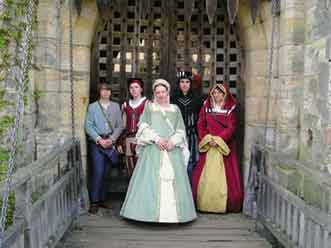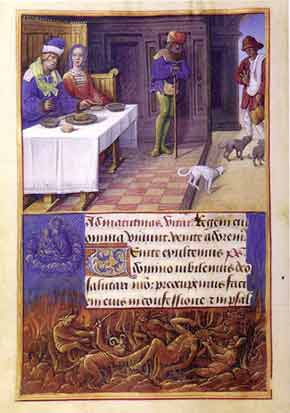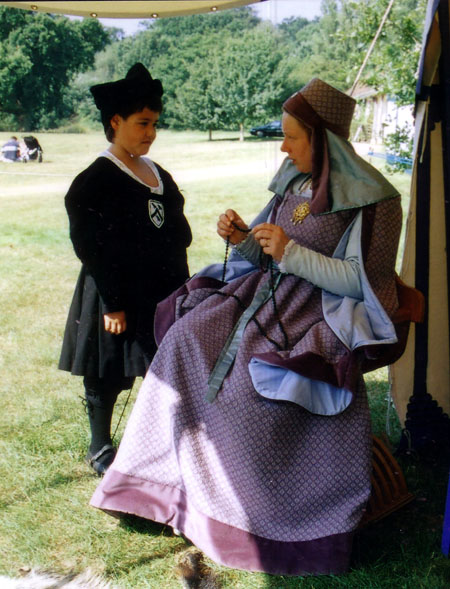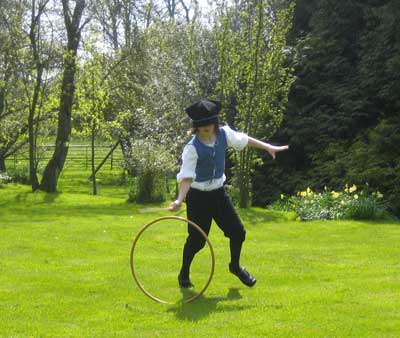| Archery |
| Brewing |
| Calligraphy & writing |
| Combat |
| Cooking |
| Dance |
| Etiquette |
| Household life |
| Medicine |
| Music |
| Needlework |
| Playacting |
| Religion |
| Storytelling |

When a nobleman referred to his “family”,
“household” or “menie”, he included both his blood
kin and all his servants and dependents. Obligations work both ways: the
lord has not only to pay but feed, clothe and maintain the health of all
those who serve his needs. He is also under an obligation to give alms
and feed the poor. After meals the almoner will take any leftover food
to the gates to give to the poor. The following illustration from the
Hours of Henry VIII shows Dives feasting and denying Lazarus
any food, the bottom border shows his punishment. |

His wife must accord him precedence over herself and any property she has brought to their union: noble marriages were still generally politically influenced, although the evidence of contemporary letters indicates that love often followed; probably due to a combination of their parents’ foresight and a compatibility borne of their similar backgrounds.
|

Learning the rosary
A fellow enjoys some playtime, having doffed his hot and heavy jerkin. |

Bowling a hoop
Learn more about children and their games
Household servants were not the inferior creatures
they became by the Victorian era, but were often given trust, friendship
and respect. A lord might employ one of knightly status as steward to
oversee his estates in his absence whilst he, himself, is serving in the
capacity of steward to an earl, the earl to the king. In England the hierarchy
of society tended, on the whole, to work to everyone’s mutual benefit:
hence the emergence of the English “yeoman”. In France where
the nobility flaunted their status whilst neglecting their obligations,
the oppressed peasants rose in the “Jaquerie” revolts of the
later 14th century: their continuing dissatisfaction culminated in the
revolution of 1789. |